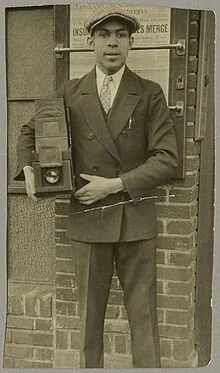Hear The Call, Play Ball
National Tour Celebrating The Centennial Of Negro League Baseball Kicks Off In Prince George’s
Story, Photos And Video By Hamil R. Harris
Andrew “Rube” Foster was more than a gifted baseball pitcher who in 1903 used his sizzling “screwball” to propel the Cuban X Giants to a 54-1 record.
On February 13, 1920, seven months after a race riot rocked Chicago killing 38 people, Foster organized the owners of Negro baseball to create the Negro National League that gave people of color a safe haven to enjoy sports.
On Tuesday night the Publick Playhouse in Cheverly felt more like the Cotton Club as the Negro League Legends Hall of Fame Inc. hosted a “Salute to Rube,” Foster as well as the local Negro teams, players, music and fashion of that era that included a little scatting on the stage by the daughter of Cab Callaway.
“This event is about the pioneers in baseball,” said Prince George’s County Council member Rodney Streeter, (District 7) who chaired the event. “Even though they were excluded from the game by their white counterparts, they persevered and went on. But there is a deeper meaning. It talks about the history of Black people: We are not only talented; we are compelled to move forward.”
Dwayne Renal Sims, Founder of the National League Legends Hall of Fame, said that it was important to start what is a national tour of the Negro league legends in Prince George’s County because according to the Maryland National Capital Park and Planning, the county was home to many sandlot baseball teams that blossomed in the county before Jackie Robinson integrated Major League Baseball in 1945.
The commission assembled an impressive collection of photos and artifacts of the teams that played across the county. There were names like: The Brentwood Flashes, Clinton Yellow Jackets, Deanwood Eagles, Glenwood Braves, Lakeland, Laurel Allstars, Mitchellville Tigers, and the Vista Yankees.








In the 1920’s Foster organized teams in Illinois, Maryland, Michigan, New York, Ohio, and Pennsylvania. In the years that followed, other leagues were founded: The Negro Southern League (1920), Negro National II (1920), Eastern Colored League (1922), and the Negro American League (1936).
“It’s just a great honor to have a ‘Foster’ to be a big part of African American history,” said William Douglas Foster, an Upper Marlboro, Md. resident and great nephew of “Rube” Foster. Foster said that his uncle and grandfather were inducted into the Major League Baseball Hall of Fame.
“My grandfather was one of the best left handed pitchers in the game,” said Foster adding that he has been to the Hall of Fame in New York twice but he never played.
Cecilia Callaway, daughter of legendary band leader Cab Callaway, also spoke during the event. She even had her own version of Callaway’s famous scat singing.
“I am here to bring resolution to our ancestors,” she said after the audience saw a video of Callaway and his band performing “Minnie the Moocher,” at the Cotton Club.
Sam Allen, 83, who played with the Kansas City Monarchs back in the 1930’s, had people laughing as he talked about playing in the final years of the Negro League. “There were 10 of us in the outfield and they said that they were taking two, which meant that eight of us were going home.”
Allen said he then went to Jacksonville for another tryout. “I bought a one-way ticket to Jacksonville.”
The Negro Leagues were still engaged in baseball up to 1960 but only the top players were signed by MLB. As a result, Allen was signed by a minor league team and one of his most precious moments was hitting a homer out of Yankee Stadium.
“We used the Major League stadiums when they had away games,” Allen said. “We made a lot of money for Major League Baseball because we would fill up the stadium.”




